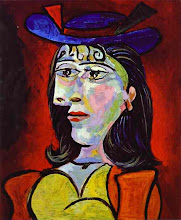
This is the new one from the acclaimed author of Al Capone does my Shirts (which I haven't read). I wasn't "felled" (sorry) by it, but I read it in one sitting. It's the story of a couple of misfits, Kirtsen and Walk, at an expensive white private high school in San Fransisco. Kirsten is white and rich but overweight and therefore not a member of the "in" crowd. Walk is Black and attending the school on a scholarship.
A couple of things brought this up short for me. First, I have a problem with the femme fatale of the book who seems too cliche for me. This is Brianna, the rich, beautiful, blonde and popular clique leader. Her mother is big on the PTO and at one point cancels the school's talent show because her daughter cannot take part. During lunch, Brianna askes Kirsten, who she knows to have an eating disorder, to lift up her shirt so they can compare stomachs. When she leaves, she pushes her half finished pizza toward Kirsten, "I think Kirsten is too thin...So here...Fatten up" (90). Maybe it has been too long since high school for me but, really, that mean? Brianna actually goes out of her way to torture Matteo, whose mother cleans house for Brianna's family, because she knows she "owns" him.
My other issue is that there are too many messages in this book: eating disorders, divorce, infidelity, honesty, and more. At times, I didn't know which message to focus on.
However, these can be overlooked because the novel does one thing well - race. This novel asks a lot of questions of young readers. What does it mean to be a low income or even middle income kid at a school swamped in over-privaleged white kids? How do you create authentic friendships with these students when your mother tells you, "Race doesn't matter...except for every hour of every day" (37). It also asks the reader to question stereotypes, even ones people have about members of their own race. Walk has a cousin, Jamal, who seems to be going down the wrong path. Jamal arrives at Walk's apartment in a black SUV, pulling a suitcase, "Got some product to show you," Jamal tells Walk. "Really fine stuff." Walk assumes the worst and replies, "I don't do this stuff, Jamal" (60). It turns out he is selling laundry detergent to make enough money to attend the same school as Walk. "Isn't anybody doesn't need soap. It's the American dream, man, right here. I've been to a weekend. They told me all about it" (61). The heartbreaking thing - and I admire Choldenko for not making everything work out OK in the end - is that Jamal gets in to the school but cannot make enough money to supplement his scholarship. The only students of color at the school have either a full scholarship or are being subsidized by a white person. Will kids be savvy enough to see that the American dream doesn't work for everyone, especially those who most need it to be true? I wish Choldenko had made this the central message instead of making it difficult to find among all the others.

2 comments:
True, Choldenko really looks at race in an interesting way in this book. Quite impressive to me. And you should give Al Capone Does My Shirts a try. I really thought it was great!
Most middle schoolers that I know are dealing with lots of issues. I wish Choldenko, however, had focused on fewer. The surprise plot twist was a little too much for me.
Brianna was a sterotype,but unfortunately I have seen girls just that mean.
Kirsten and Walk are very likeable. I want them to be successful.
Post a Comment